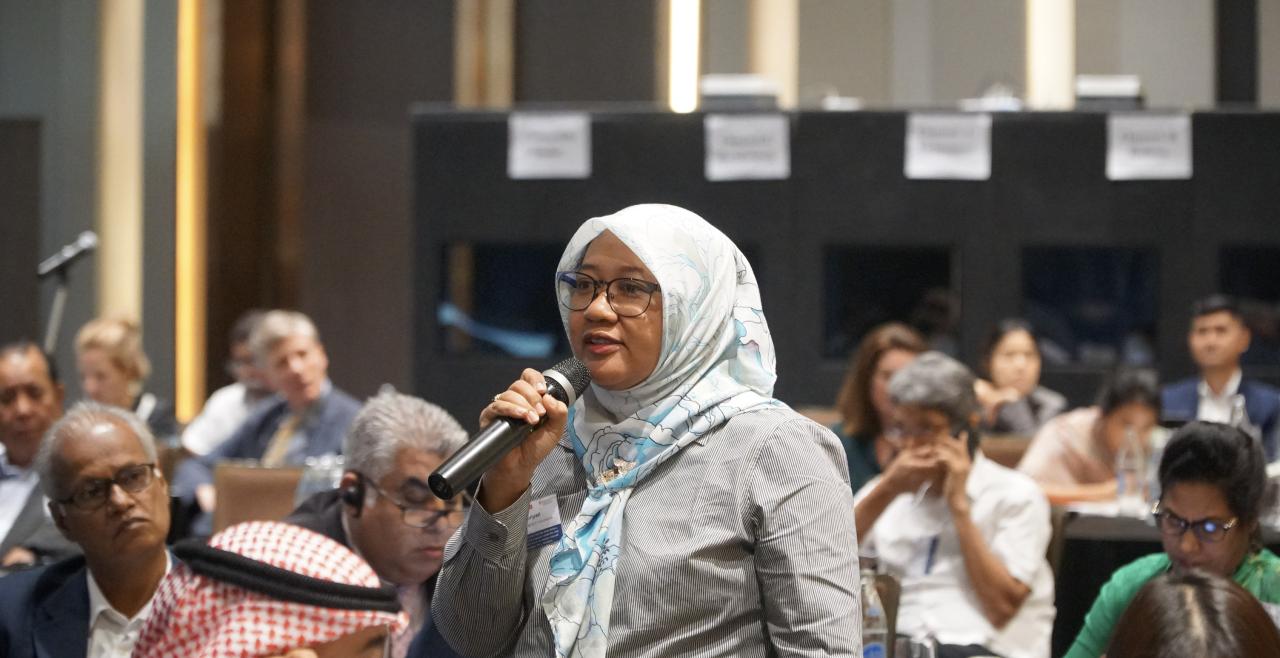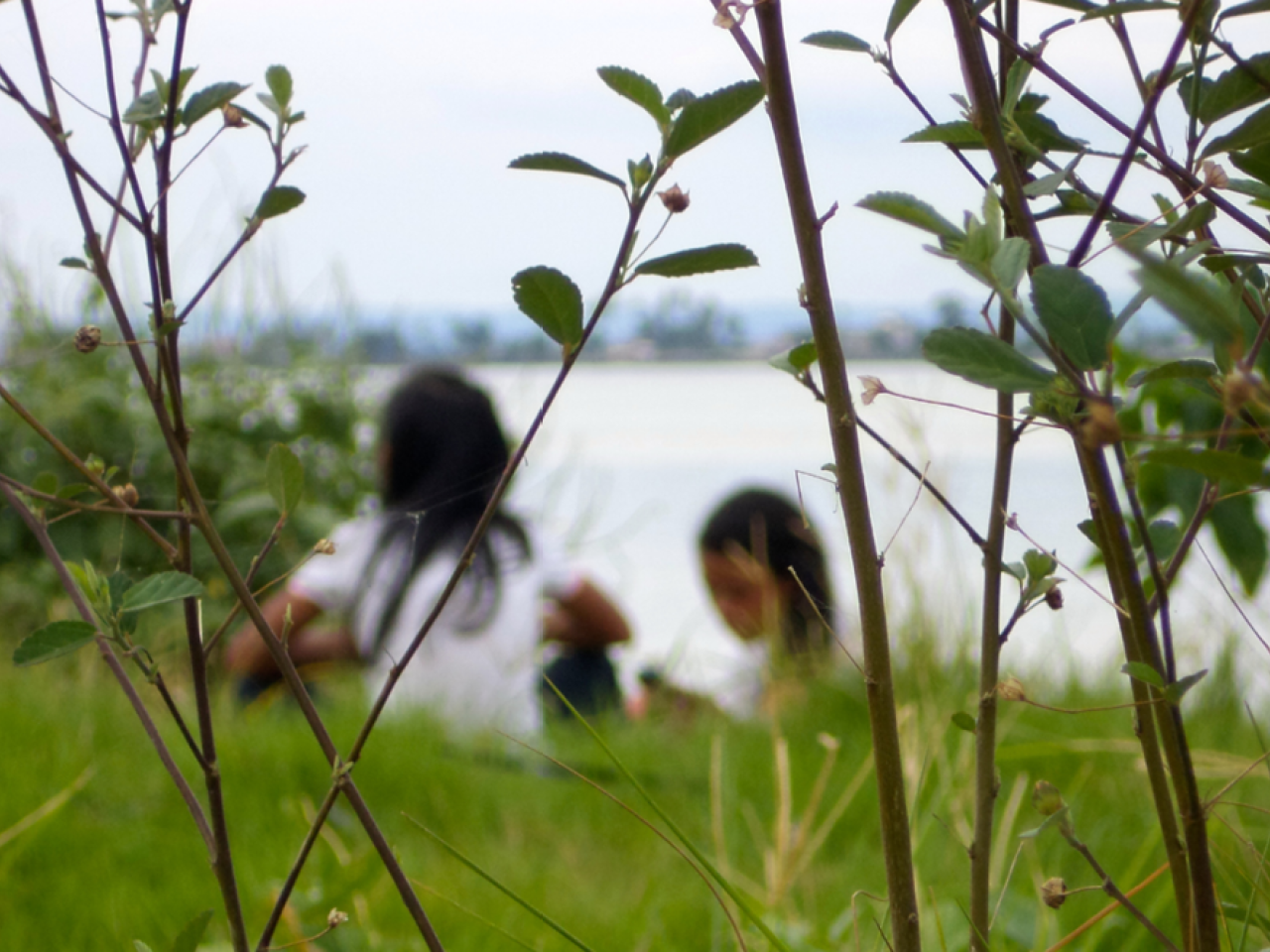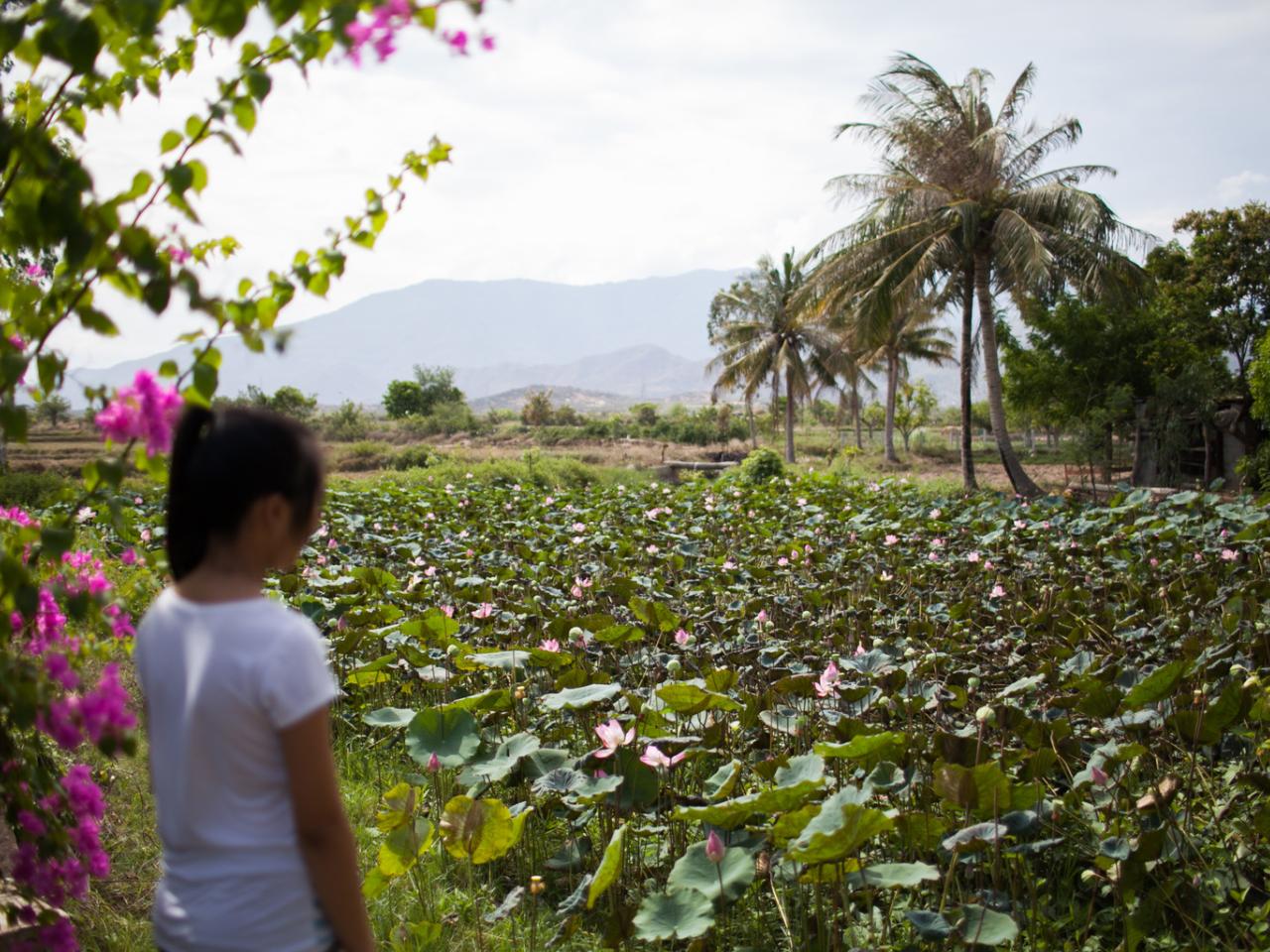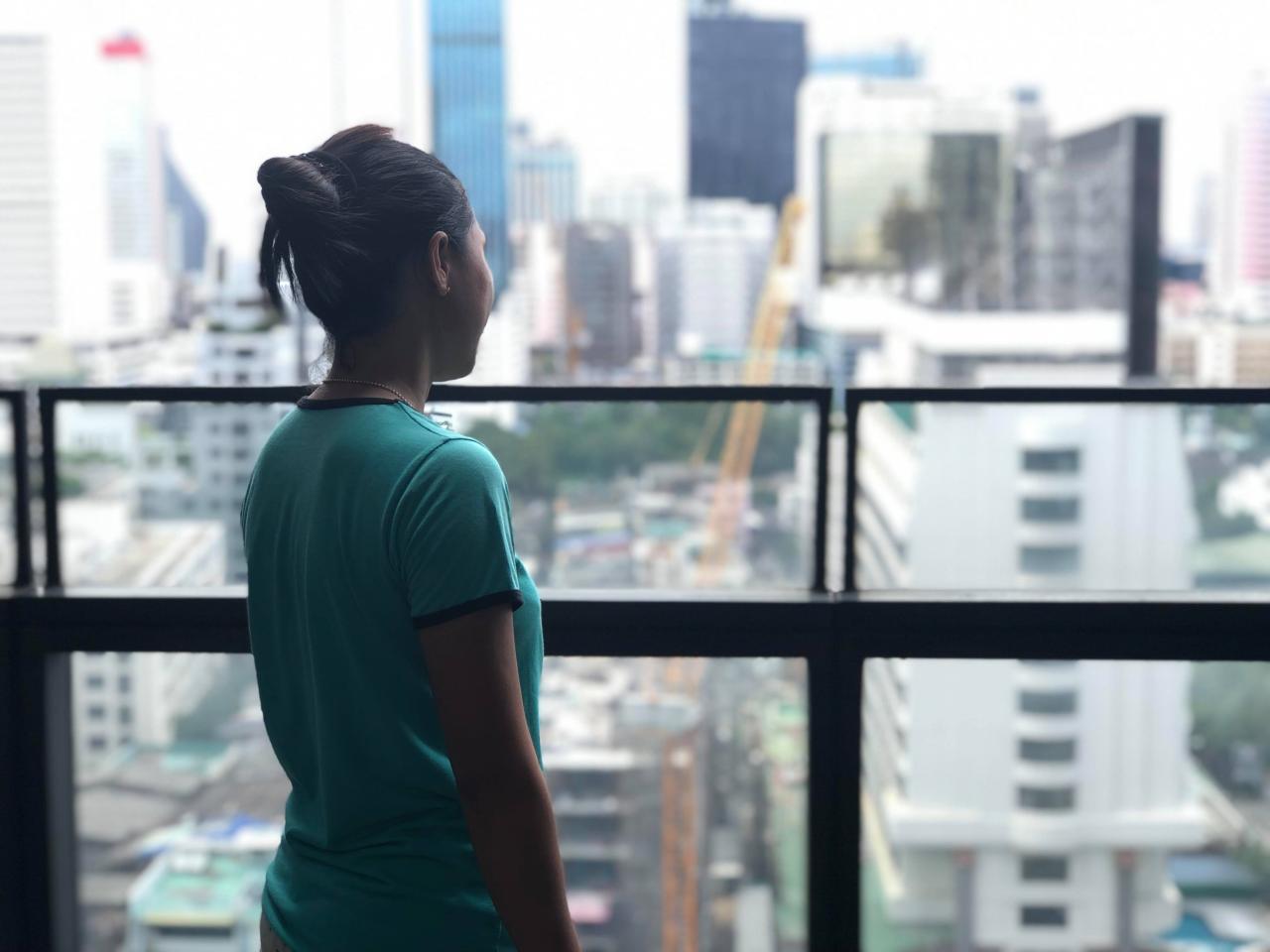From exploited worker to labour rights advocate

MALANG, Indonesia - One of Dina Nuriyati’s most vivid childhood memories is of her father hiding at the neighbour’s house while debt collectors knocked on the door of her family’s home in East Java, Indonesia. Her father worked hard to support his six kids, but his truck driving job and the small rice field he farmed were rarely enough to cover the bills. “I couldn’t bear to see my parents face such problems,” says Ms. Nuriyati.
When she finished high school, she was recruited to become a domestic worker in Hong Kong. It seemed like a good option – by working abroad, she could pay off some of her family’s debts while saving to study at university.
However, instead of the high wages and ideal living conditions depicted by her employment agency, she encountered a system of routine exploitation.
"With my lack of knowledge, I did not see these working conditions as a serious problem” - Dina Nuriyati, workers' rights activist
While she waited for her travel documents to process, the employment agency housed her in a garage where she and other trainees slept on the floor. Later, during her training period, she worked with a local employer who made her sleep in a former warehouse filled with rats.
Conditions in Hong Kong were not much better.
“The first two months, I went through a ‘discount period’ where I did not get a salary or a day off,” she says. Even after this period, she received only HK$2000 ($258) a month – far less than the HK$3860 ($497) stipulated in her contract. She was also granted just two days off per month, half the legal requirement, and was expected to care for a 9-year-old boy and clean the houses of her employer’s other relatives.
Despite her unhappiness, it didn’t occur to her to complain. “With my lack of knowledge, I did not see [these conditions] as a serious problem,” she says. As long as the employer was not violent toward me, that was enough.” Isolation compounded the issue. “I didn’t have access to information except what the employment agency told me,” she says.
"What I and other migrant workers experience is a violation of rights" - Dina Nuriyati, workers' rights activist
Ms Nuriyati’s story is all too common. South-East Asia and the Pacific host a significant share of the world’s domestic workers, accounting for 9.1 million workers. Eighty-three per cent of them are women. With a language barrier and no support network to fall back on, migrant women are disproportionately vulnerable to exploitation, violence and trafficking.
The power of organizing
It was only later, when Ms. Nuriyati secured a position with a different family, that she began to see how unfairly she’d been treated. This time, Ms. Nuriyati was paid according to her contract and she was granted the mandatory one day off per week.
She also came into contact with the Indonesian Migrant Workers Union (IMWU). It changed her life.
“This really opened my eyes to the fact that what I experienced – and what other migrants experience – is a violation of rights. I wish I had known some of my entitlements before I decided to work in Hong Kong,” she says.
Now, she works to ensure that other women are equipped with the knowledge and resources to avoid the kind of exploitation she faced.
“I’m happy to be able to help others, especially fellow migrant workers" - Dina Nuriyati, workers' rights activist
Going home
When she returned home to Indonesia, Ms. Nuriyati established a trade union focused on the labour rights of migrant workers, the Federation of Indonesian Migrant Workers Organization - now known as the Indonesian Migrant Workers Union (SBMI).
Elected as the first chairperson, she has successfully pushed for legal reforms that better protect migrants, raised awareness among women about their rights and helped other workers to organize. One of the most effective ways of preventing the exploitation of women migrant workers is to guarantee their ability to organize, collectively bargain and to join trade unions in destination countries.
“I’m happy to be able to help others, especially fellow migrant workers. It makes life feel more meaningful,” she says.
Ms. Nuriyati is an Advisory Board Member and Coordinator of Research and Foreign Relations for SBMI, one of ten Indonesian organizations that work with Spotlight Initiative’s Safe and Fair programme to advance the rights of women migrant workers in the ASEAN region. Since January 2019, Safe and Fair and its partners have provided information to more than 6,000 women migrant workers.



